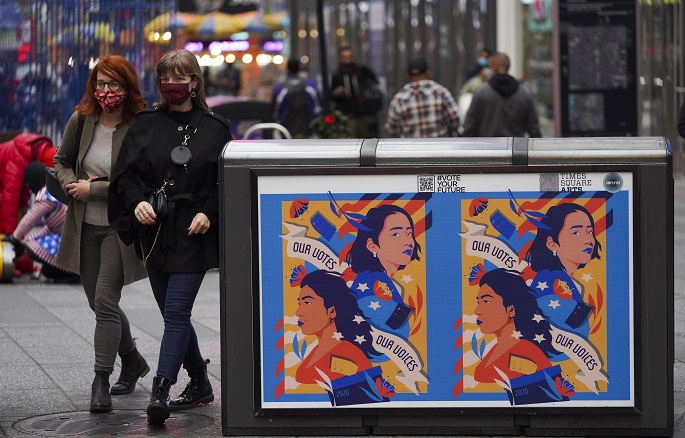U.S. hits over 100,000 single-day COVID-19 cases after Election Day
Published : 05 Nov 2020, 22:13
The United States added record-breaking 100,000 plus new COVID-19 cases in a single day on Wednesday, while people nationwide are waiting for the outcome of the presidential election, reported Xinhua.
A total of 106,537 new cases and 1,141 new deaths were recorded on Wednesday, according to data updated by the U.S. Centers for Disease Control and Prevention (CDC) on Thursday.
The record-high case count sets a new milestone since the outbreak of the pandemic in the country, which had been predicted by experts months ago.
In June, with daily cases hovering around 40,000, Anthony Fauci, director of the U.S. National Institute of Allergy and Infectious Diseases, warned the country was on track to hit 100,000 daily cases if the nation did not work harder to stop the spread of the coronavirus.
Daily new confirmed coronavirus cases in the U.S. have surged 45 percent over the past two weeks, to a record 7-day average of nearly 90,000, according to data compiled by Johns Hopkins University.
Wednesday's death count also marked the highest since mid-September, CDC data showed.
In addition to sky-high daily infections, key metrics, including rising hospitalizations and testing positivity rates, indicate that the country's outbreak is worsening, according to data from The COVID Tracking Project.
Hospitalization numbers peaked in 16 states on Wednesday. 20 states have over 1,000 people currently hospitalized with COVID-19.
Florida, for instance, recorded 6,257 coronavirus cases Thursday, the first time the state logged more than 6,000 cases since Aug. 15, according to the Florida Department of Health.
With the Thanksgiving holiday is just weeks away, experts are concerned Americans will let their guard down which may further fuel an already rampant spread of the virus.
The United States has recorded more than 9,537,000 confirmed COVID-19 cases and over 234,200 deaths as of Thursday afternoon, according to the real-time count kept by Johns Hopkins University.


